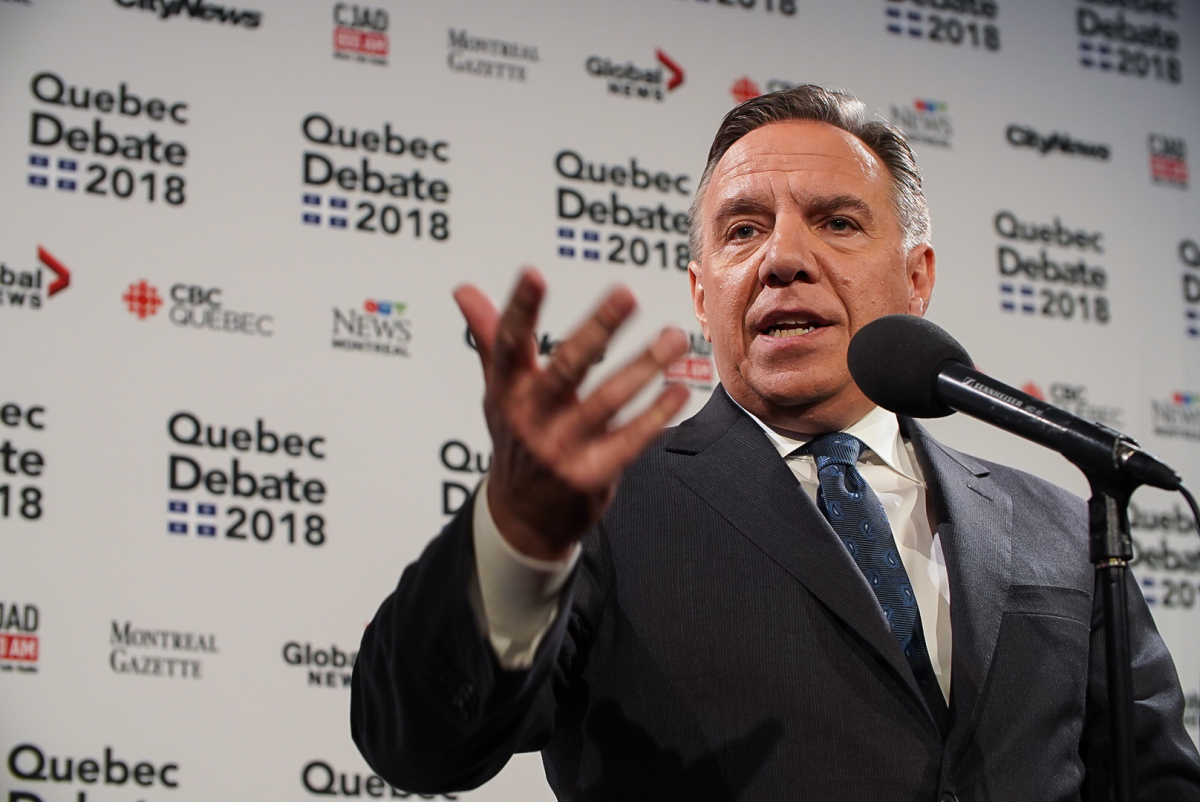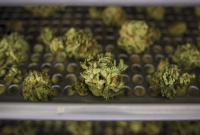Support strong Canadian climate journalism for 2025
Legal experts say that raising the legal cannabis age in Quebec to 21, as proposed by the Coalition Avenir Québec (CAQ) party, will prompt legal challenges from young Quebecers on the grounds of age discrimination.
Quebec lawyer Mathieu St-Onge said he is convinced that raising the age from 18 to 21 will land in the courts. "If it goes into law, I'm convinced there is going to be an argument made.”
Quebec would have highest minimum age for cannabis consumption in the country if François Legault’s centre-right party, currently neck-and-neck in the polls with the governing Liberal party, wins the Oct. 1 provincial election and keeps its campaign promise.
Simon Jolin-Barette, CAQ MNA for the Montérégie-area riding of Borduas, told National Observer that the age raise was necessary because "as a government and as a society, we have a responsibility to not trivialize cannabis consumption, and send a clear message to young people that smoking marijuana has serious consequences for your health."
The Quebec election date is fewer than three weeks before cannabis is legalized federally; if elected, the CAQ will have to act fast to change the law before the deadline.
Jolin-Barette said that his party, if elected, would table an amendment to the existing law "as soon as possible," but he conceded that "it might be" after the Oct. 17 day of legalization. It would also amend the existing law to ban consumption in public places.
Bill 157, Quebec’s cannabis law, was passed in June and set the legal age at 18. All the other provinces and territories have opted for a minimum age limit of 18 or 19 for when cannabis is legalized on Oct. 17.
Government 'hypocrisy?'
Legal experts from Quebec and across Canada have said that an amendment to the law that untethers the legal age for cannabis consumption from Quebec’s age of majority of 18 will result in legal challenges on the grounds it infringes section 15 of the Canadian Charter of Rights and Freedoms, which prohibits discrimination on the basis of age.
“The basic question is, should the Quebec government increase the age of consumption of cannabis but not anything else? Is there a little bit of hypocrisy in saying you can drink alcohol, you can go to a strip club, you can vote, but you can't consume cannabis? You can do a lot of things in Quebec at 18,” said St-Onge, who practices in Montreal firm De Grandpré Joli-Coeur.
The Barreau du Quebec, the provincial law society, also told lawmakers in its brief on the draft of Bill 157 in January that setting a “minimum consumption age” of above 18 “would be susceptible to a challenge” on the basis of age discrimination. Further comment from the law society for this article was declined.
Jolin-Barette said he is "confident that if the provincial government put the age at 21, it would be safe in front of a courthouse." He pointed out that in Manitoba, the drinking age is less than the cannabis consumption age and in some provinces, people will have to wait one year after being able to vote to consume cannabis legally.
Kirk Tousaw, a cannabis lawyer based in British Columbia, said challenges in Quebec “could be successful – and I certainly hope they would be.” He believes that "the number one harm that involves young people and old people alike as a result of cannabis is if they are arrested for and get a lifetime criminal record."
He elaborated that a prohibition on people aged 18 to 20 consuming cannabis could be challenged defensively, on behalf of someone charged with an offense, "or offensively, and that type of challenge would likely be brought in federal courts or provincial superior courts.”
CAQ alone in its plan
Tousaw added that other provinces that have set their legal consumption age above the age of majority, like Manitoba, are also susceptible to legal challenges on the grounds of age discrimination. He said he did not envy the task at hand for a potential CAQ government.
“Can you imagine being an elected representative in a province and thinking that one of the most important things that you need to do in your first three weeks in office is raise the age at which adults can possess cannabis and criminalize a whole generation of 18, 19, and 20-year-olds?”
Noa Mendelsohn Aviv, director of the equality program at the Canadian Civil Liberties Association said that any “law that might limit somebody’s fundamental rights shouldn’t be passed unless there is a reason that justifies it.” That justification could be medical, she said.
She warned that Quebecers from racialized communities would suffer most from stricter regulations, given that they are “policed, monitored, and surveilled more than others.”
Bianca Boutin, press attaché for current Liberal Rehabilitation, Youth Protection and Public Health Minister Lucie Charlebois said that a legal age of 18 was in part picked to match the legal drinking age. She wrote in an email to National Observer that it “protects young people by providing them with a product whose origin and traceability is known,” and prevents them from turning to the black market.
The Parti Québécois also supports a legal age of 18. Party spokeswoman Valérie Chamula said the CAQ is “playing on fear with [its pledge to] raise the legal age to 21,” noting that the policy would encourage people between the age of 18 and 21 “to continue to buy drugs from organized crime,” instead of state-run stores.
All of Quebec solidaire’s MNAs supported the Liberal bill in June.
Editor’s Note: This piece was updated at 7:04 p.m. E.T. on Sep. 20, 2018 to correct the title of Lucie Charlebois from Health Minister to Liberal Rehabilitation, Youth Protection and Public Health Minister






Comments